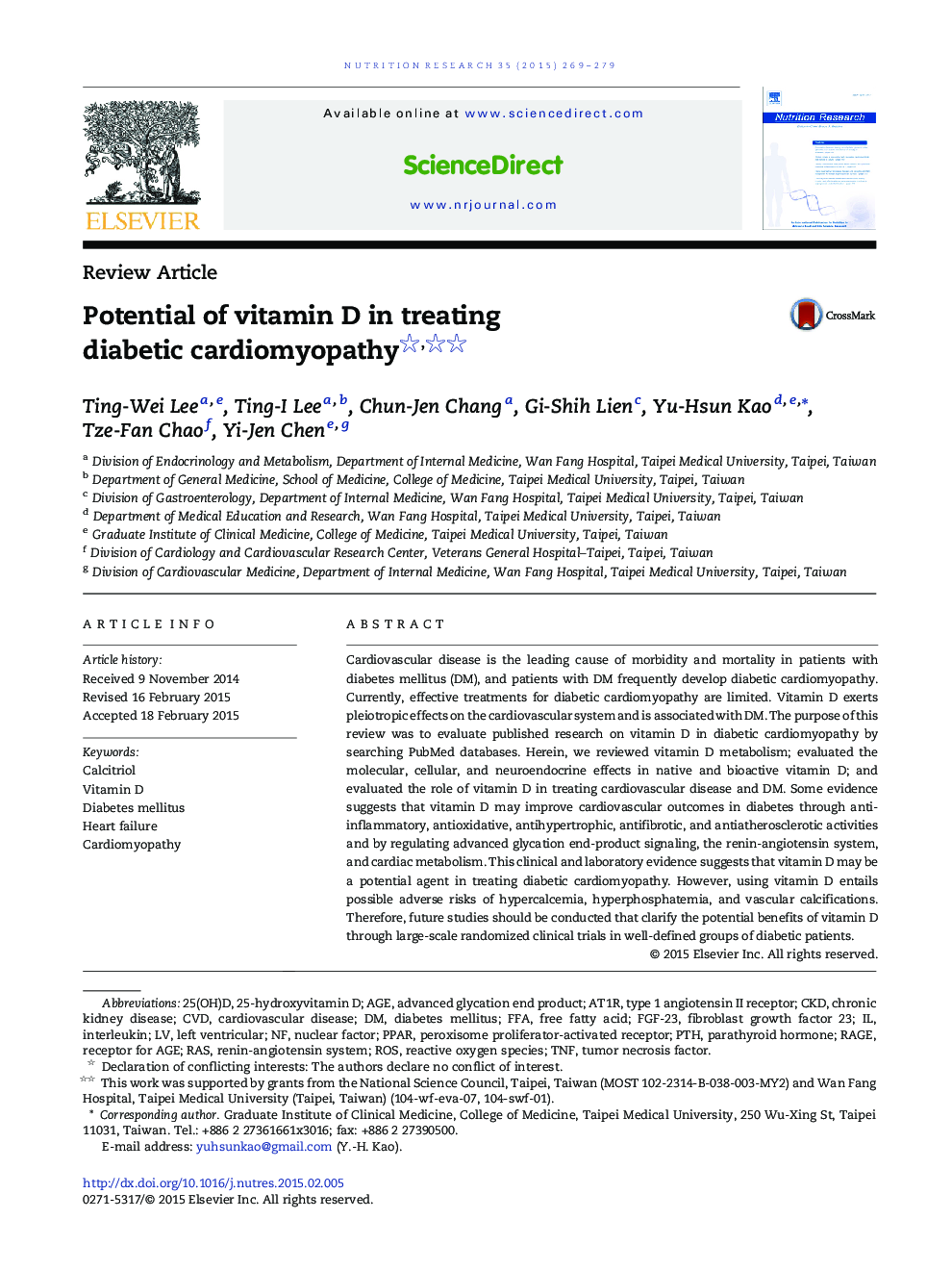| Article ID | Journal | Published Year | Pages | File Type |
|---|---|---|---|---|
| 2809038 | Nutrition Research | 2015 | 11 Pages |
Cardiovascular disease is the leading cause of morbidity and mortality in patients with diabetes mellitus (DM), and patients with DM frequently develop diabetic cardiomyopathy. Currently, effective treatments for diabetic cardiomyopathy are limited. Vitamin D exerts pleiotropic effects on the cardiovascular system and is associated with DM. The purpose of this review was to evaluate published research on vitamin D in diabetic cardiomyopathy by searching PubMed databases. Herein, we reviewed vitamin D metabolism; evaluated the molecular, cellular, and neuroendocrine effects in native and bioactive vitamin D; and evaluated the role of vitamin D in treating cardiovascular disease and DM. Some evidence suggests that vitamin D may improve cardiovascular outcomes in diabetes through anti-inflammatory, antioxidative, antihypertrophic, antifibrotic, and antiatherosclerotic activities and by regulating advanced glycation end-product signaling, the renin-angiotensin system, and cardiac metabolism. This clinical and laboratory evidence suggests that vitamin D may be a potential agent in treating diabetic cardiomyopathy. However, using vitamin D entails possible adverse risks of hypercalcemia, hyperphosphatemia, and vascular calcifications. Therefore, future studies should be conducted that clarify the potential benefits of vitamin D through large-scale randomized clinical trials in well-defined groups of diabetic patients.
